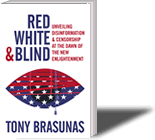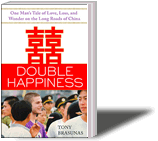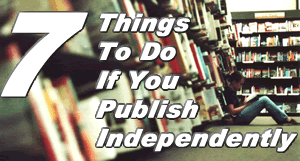7 Things To Do if You Publish Your Book Independently
25 2015
If you want to publish a beautiful and popular book using the powerful publishing tools available to authors today, here are seven things you need to do to succeed.
(This is Part III of an Indie Pub Trilogy. Part I is an overview of the pros and cons of independent and traditional publishing. Part II recounts my personal journey to publishing independently rather than via a literary agent.)
- Write a great book. First, and most importantly, before we talk about anything else, you need to write absolutely the best book you can. Pour your talent and your time into it. Stop reading this article, and go write your tour de force. Right now.Or right after reading this article. You do need to know a few more things.
The truth is, despite any cynicism you might hear on the interwebs about uneducated readers, dwindling attention spans, or a glut of writers, this is a fabulous time to be a good writer. Both readership and book sales per reader are growing and will continue to grow. Good writing will rise above mediocre writing every time, and exquisite prose that sings like poetry will always rise to the top. Fabulous writing will also make everything about promoting your voice, getting your word out, and selling your book infinitely easier.
Read, write, revise, repeat. It is the way, it will always be the way. We humans have been telling each other stories at least since there was fire. Storytelling is here to stay. Feel free to get really good at it.
- Promote now. That said, start promotion today. Many people told me this, but still I sort of dabbled and waited until I felt done with my book. I finally did start this blog and write occasional articles, but I could’ve and should’ve been doing a lot more via social media and via a newsletter.You don’t have to do everything; don’t get overwhelmed and then never start. See #6, “Focus on you,” below.
But do something to promote your voice or your writing today, and keep it up. Then do something else. Here are some ideas:
- Connect with people now whom you see as your ideal readers.
- Write blog articles or newsletter e-mails that these ideal readers can connect with now, even if they might not discover you for months or years.
- Cultivate a few media contacts, or a few dozen. Write a list of the kinds of marketing you’ll do on or around your book’s launch date, such as a book tour, a blog tour, book awards, conferences and festivals, media interviews in print, radio, tv, etc.
- Write a book review of your book, saying what you hope someone one day will say about your book.
- Write an article now about yourself, saying what you hope a reporter will write about you someday soon.
- Save these articles for later; they will be very helpful.
- Build your team. You will in fact go crazy if you try to do all of this yourself. Find and hire talented people. You are going to have to spend some money. Accept this. Remember, you get all the proceeds from your eventual sales.If you really don’t have money, offer barter, trade, or favors in return. It’s also absolutely fine to consider crowd funding and kickstarter. The point is, build a team.
You don’t need to hire the most expensive people out there, but if you bring together only graduate students and first-timers, it will show. I don’t regret any of the true professionals I hired; they raised the level of the work that everyone on my team did. Of the semi-professionals, they all really came through for me too. All but one, that is.
Unless you yourself are a professional or semi-professional in these roles, you should consider hiring for:
- Editor
- Proofreader
- Cover designer
- Book designer for print
- Book designer for ebook
- Publicist
- Website designer
- Book launch celebration planner
- Audiobook studio (optional, if you do an audiobook)
- Illustrator (optional, if your book has illustrations)
- Book tour planner (optional, if you do a physical tour)
I recommend taking on one or two roles that you want to learn, and then hire people for the other roles. I’m quite happy at this point that I spent a bit more money than I needed to on the cover designer, the book designer, and the launch celebration. At the end of the day, you can and should be deeply proud of the team you put together and of the book you create. As for me, I’m proud I wrote Double Happiness, proud I independently published it, and proud of everyone who created it with me.
- Spend actual time and money on publicity. Probably the one thing that I skimped on was publicity. It just didn’t seem important to me or to the dream guiding my project. I now regret this and will do it differently next time. When you write a great book, it will always be possible to connect to the community of readers out there who love and care about what you write. You just need to spend a little real time and money in advance to get the ball rolling. You’re worth it.I finally did hire a publicist on the cheap, and I got what I paid for. She quit on me at a random and inopportune time. So I did it again, and again got what I paid for, which is to say, I got nothing. Of all the people I hired, this role is the one with which I repeatedly experienced disappointment. I ended up learning many things the hard way. I taught myself how to plan and book events at bookstores and libraries, how to place media pieces in newspapers and blogs, how to write press releases, how to use facebook and twitter to connect to interested readers. The effect of all of this was playing a lot of catch-up with publicity after my book’s launch.
- Schedule generously. The launch day of your book will be the single biggest event you will have to promote. Use it fully, wisely, and enthusiastically. Give yourself plenty of time after your books is done and produced to plan your launch. You will have other events too, of course, and your appearances in local markets will help too (if you do a physical tour), and you can market your events, your book awards, and your appearances in the media. But the launch day is the big one. Don’t plan to pop that first bottle of champagne before everyone — and everything — will be ready.For me, once I was done and the proofreader had the book and the cover designer was sending me designs, etc., I was ridiculously eager to launch the book and get it into people’s hands. After all, it had been ten years in the writing, editing, and preparing. My enthusiasm was a potent part of the success of my launch. But in my impatience I also rushed a lot of things. I scheduled the launch months in advance, but still it was far too little time. There’s a reason why big movies are announced as much as a year in advance. Building your team and scheduling your publicity and marketing is essential, and it takes time.
Ultimately your launch timing should be a balance between publishing the book when your personal enthusiasm is at a peak and waiting until all the publicity efforts you can possibly muster are coordinated and ready.
- Focus on you. Now, I’ve said all of that about marketing and publicity to set this up: It’s critical also to step back from the world. As you research indie publishing and read other articles like this one and talk to other authors, you will probably feel pressure to do everything everyone else is doing — to spam people via email, to post your every thought on twitter, to yell the loudest about your project. What will really help most of all on this path is being yourself. Do your thing. Speak your mind. People want to connect with your passion, your insight, and your personal take on the world. Not the passion or voice of your publicist or your own marketing persona. No one needs to see more “me too” tweets about the latest news headline or more vanilla “buy my book” posts on facebook. Be the one and only you. It’s a cliche for a very good reason.
- Own this chosen path. Finally, you’ve chosen to be a pioneer in the dawning age of independent publishing. Embrace your path, speak it proudly. Whatever it took you to write and to publish your book — this is your story. Own it. Love it. Once upon a time there was a stigma about “self publishing” and “vanity presses,” and some people still see the world the way it was in 1999. Humor them. When someone asks about independent publishing, share this creative and courageous choice you’ve made. Tell people all about it. You’ll probably inspire them.Sometimes I’m asked: “So who published your book?”
I say: “I did. I started a small publishing company, hired a team of awesome people, and together we created a beautiful book. It’s the story of a time in China that completely changed my life.”
With Double Happiness I’m telling the story I longed to tell, so that others might gain from my experiences, and I’m telling it on my terms. I worked with professionals to create a gorgeous physical and electronic work of art that will stand the test of time. And in so doing I’ve learned how to publish the next book too.
It’s nothing special about me. You can do all of this too.





Tony, this is really good! Your grandmother forwarded it to me. I’m anxious to read the other two. Bobbi
Hi Bobbi. I’m delighted you like the information. Are you interested in publishing a book?